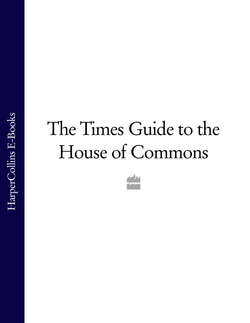Читать книгу The Times Guide to the House of Commons - Литагент HarperCollins USD, Ю. Д. Земенков, Koostaja: Ajakiri New Scientist - Страница 64
The chamber
ОглавлениеIt is a commonplace that the chamber of the Commons is not what it was. Debates are no longer reported in the press and most are poorly attended, but that is partly because there are now many other ways in which MPs can raise issues. The introduction of Westminster Hall as a secondary chamber has taken some of the pressure off the floor of the Commons. Westminster Hall holds debates from Tuesdays to Thursdays on constituency issues as well as national policy questions, with time regularly allocated for debates on select committee reports. In each case, a minister has to be present to give the government’s response to either a narrow grievance or a broader policy issue.
Question Time, traditionally seen as the epitome of adversarial politics, has changed in a number of largely unappreciated ways. Each departmental Question Time now has a period for topical questions asked without any prior notice to the minister, while there is also a reduced notice period for tabling oral questions. MPs also table more written questions. Since 1997 Prime Minister’s Questions has been a 30-minute session each Wednesday, later moving to noon, rather than two 15-minute sessions at 3.15pm on Tuesday and Thursday.
That has also reflected a series of changes in the timing of the parliamentary day. Monday and Tuesday sessions now begin at 2.30pm and last until between 10.30pm and 11pm, depending on the number of divisions at the end of the main business. The Wednesday session starts at 11.30am and ends at about 7.30pm; the Thursday session begins at 10.30am and ends at 6.30pm; and the much less frequent Friday sessions start at 9.30am and end by 3pm. This has had the effect of concentrating the parliamentary week from Monday evening until, usually, Wednesday early evening, and only occasionally Thursday.
John Bercow, elected as Speaker in June 2009, and reelected in May 2010, has made a priority of strengthening the chamber and empowering the backbench MP. He has sought to speed up parliamentary business and ensure that more questions are asked of ministers. He has also allowed many more urgent questions, roughly one a sitting week compared with two in the 12 months before his election. Urgent questions allow any member to seek to compel a minister to come to the Commons to address an issue of importance. This has put pressure on the Government to volunteer statements of its own.
